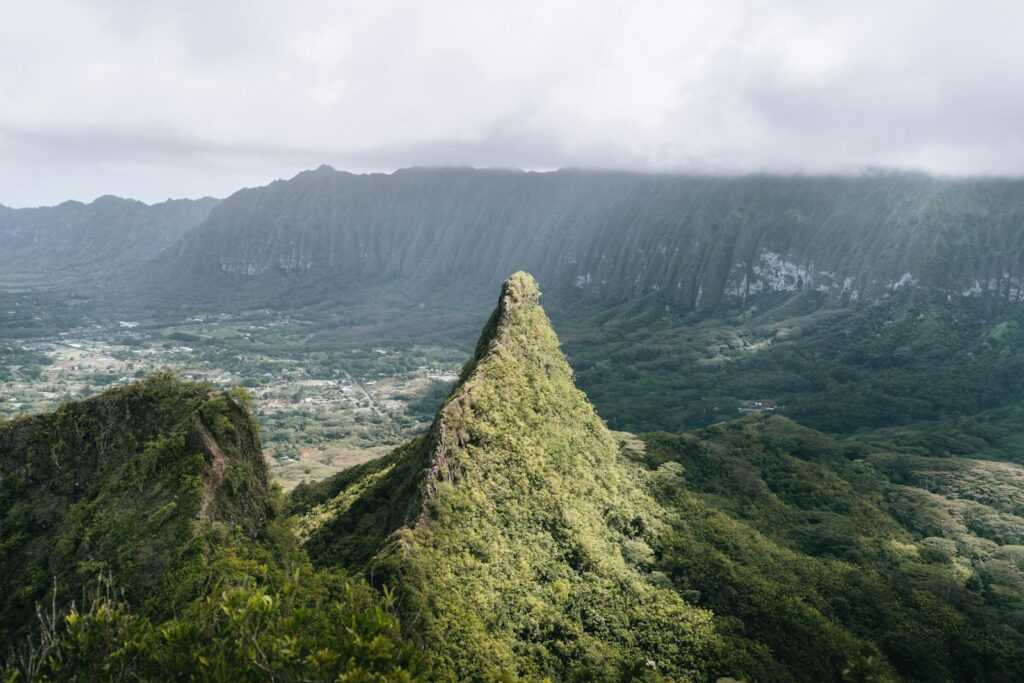Hawaii, an isolated archipelago in the Pacific Ocean, has had an outsized impact globally despite its remote location. From business and tourism to culture and environmental leadership, Hawaii exemplifies living sustainably on islands in a connected world.
Introduction
The Hawaiian Islands, over 2,000 miles from the nearest continental landmass, developed a vibrant culture for centuries before the arrival of Europeans. The native Hawaiian’s stewardship ethic, or kuleana, valued sustainability through balancing natural and spiritual ecosystems.
When Hawaii became the 50th U.S. state in 1959 after outside settlement and missionary influence transformed the islands, it was uncertain what impact it could have globally. Yet in the over 60 years since statehood, Hawaii has continued expanding its worldwide reach across various domains.
Business & Tourism
Tourism drives Hawaii’s economy, with over 10 million visitors per year contributing $17 billion annually. Luxury hospitality brands have properties on all major islands to accommodate visitors who come for Hawaii’s idyllic beaches, volcanic landscapes, and tropical amenities.
In addition to tourism, Hawaii has become a hub for trans-Pacific trade and travel. Hawaiian Airlines, headquartered in Honolulu, flies over 20 international destinations in the Americas, Oceania, and Asia. Its 237,000 annual flights ferry goods and businesspeople as a critical economic conduit bridging East and West.

Hawaii’s agricultural exports seem small at $600 million directly, but the combined $3 billion food and beverage industry shapes culture through Hawaii Regional Cuisine celebrating the state’s tropical bounty. Pacific Islanders’ voyaging legacy continued as mature fishing grounds today provide 40% of U.S. tuna.
Hawaii’s location makes it an ideal gateway between Asia and the Americas. Business partnerships in Silicon Valley and tech sector growth have helped the economy diversify while retaining its lush island identity. Hawaii proves how “Small Islands Beyond the Coast” globally have resources and nimbleness supporting sustainable development, as concluded by a 2022 United Nations report.
Environmental Leadership
Long before climate change entered public discourse, Hawaii led in sustainability efforts. As an island state, preserving natural resources is integral to economic viability. In 2015, Hawaii became the first U.S. state to legislate a 100% renewable energy goal by 2045. Already, over 15% of power comes from solar, wind, and other renewables.
On biodiversity, Hawaii issued over $19 million in grants in 2022 alone to protect endangered species through breeding programs and habitat conservation. Species recovery successes like the nēnē goose, ‘alala forest bird, and monk seals brought back from under 100 individuals inspire hope.
Such biodiversity programs allowed Hawaii to achieve over 30% of land protected compared to the U.S. average below 15%. As the “Endangered Species Capital of the World” with over 40% of remaining U.S. endangered species, Hawaii carries importance beyond its isolated locale.
Preserving Native Culture
The islands’ Polynesian heritage imbues modern Hawaiian identity. Indigenous language, art, voyaging, and stewardship practices have undergone a cultural renaissance after Generation X and millennials led activism around native land rights in the 1970s.
Public schools now mandate teaching Hawaiian history and ethnobotany. Tracking population percentages shows increased pride in Hawaiian origins:
| People Reporting Any Hawaiian Ancestry | 2000 | 2010 | 2020 |
|---|---|---|---|
| Percent of Population | 20% | 26% | 30% |
Revival of traditions like long-distance canoe voyaging have connected native Hawaiians with Polynesian cousins across Oceania to share ancestral knowledge. The Merrie Monarch Festival celebrating hula and arts attracts visitors worldwide.
Hawaii shares its indigenous land stewardship model globally to honor the spiritual connection central to sustainability. The Aloha+ Challenge launched at Rio+20 setting sustainability goals for Hawaii and the Pacific similarly guides Small Island Developing States internationally.
Hawaii on the World Stage
Hawaii entered global consciousness when Barack Obama, who spent much of his childhood in Honolulu, took office as 44th U.S. President in 2009. He protected Papahanāumokuākea Marine National Monument northwest of Hawaii as one of the planet’s largest conservation areas at over 580,000 square miles.
Hawaii likewise shares the international stage through cooperation on Pacific affairs via the East-West Center in Honolulu and corporate partnerships across Oceania focused on climate resilience and sustainable economic development.
In 2024, the United Nations Decade of Ocean Science plan to generate sustainable solutions for Small Islands and vulnerable coastal communities kicks off in Honolulu at the first Global Planning Meeting. Hawaii emerges as a leader for planetary health spanning terrestrial forests and marine biodiversity.
Through a persistent aloha spirit sharing its natural and cultural bounty with openness, Hawaii transcends its remoteness to be a globally recognized leader and model for living sustainably on Earth’s most isolated outposts.
Conclusion
In conclusion, Hawaii has magnified its influence worldwide across tourism, commerce, culture, sustainability despite its extreme isolation in the Pacific Ocean.
By generously sharing its indigenous island wisdom with peoples across the Pacific and beyond, Hawaii emerges now in the 21st century as the heart of the ocean that connects us all and as a blueprint for global community caring for our island home.
Resources:
- Hawaii Magazine: Hula Goes Global: https://www.hawaiinewsnow.com/video/2023/12/14/japan-loves-hula/
- Ukulele Underground: The Ukulele’s Impact on the World: https://forum.ukuleleunderground.com/forums/ukulele-marketplace.7/
- Food & Wine: How Hawaiian Food Conquered the World: https://www.foodandwine.com/hawaii-7496818
- Maunakea Observatory: https://www.maunakeaobservatories.org/
- National Oceanic and Atmospheric Administration (NOAA): Hawaiian Islands Ocean Observing System: https://www.noaa.gov/
- Hawaii State Department of Business, Economic Development & Tourism: Renewable Energy: https://dbedt.hawaii.gov/
- Hawaii Tourism Authority: Sustainable Tourism: https://www.gohawaii.com/
- Bishop Museum: Hawaiian Cultural Practices: https://www.bishopmuseum.org/